Portuguese breakfast dishes offer a delightful mix of flavors and textures. From sweet pastries to savory egg dishes, there’s something for everyone to enjoy.
These recipes showcase the country’s rich culinary traditions and love for good food.
You’ll find 16 easy-to-make Portuguese breakfast recipes that will add variety to your morning routine. These dishes use simple ingredients to create tasty meals that reflect Portugal’s history and culture.
By trying these recipes, you can bring a bit of Portuguese charm to your breakfast table and start your day with a delicious twist.

1. Pastel de Nata
Pastel de nata is a beloved Portuguese custard tart. You’ll find these sweet treats in bakeries across Portugal, especially for breakfast.
The tarts have a crispy, flaky crust filled with creamy egg custard. They’re often dusted with cinnamon and powdered sugar.
You can enjoy pastel de nata warm, right out of the oven. They pair perfectly with a strong coffee or espresso to start your day.
These tarts originated over 300 years ago in a monastery near Lisbon. Monks created the recipe using extra egg yolks. Today, they remain a popular breakfast choice in Portugal.

2. Bola de Berlim
Bola de Berlim is a popular Portuguese doughnut that you’ll often find at breakfast tables. These sweet treats are fried to golden perfection and filled with a creamy custard.
To make Bola de Berlim, you’ll start by preparing a yeast dough. Let it rise until doubled in size.
While waiting, make the custard filling by cooking milk, egg yolks, and sugar.
Once the dough is ready, shape it into small balls and fry them in hot oil. After cooling, fill the doughnuts with the custard and dust them with powdered sugar.
These fluffy, custard-filled doughnuts are a delightful way to start your day in Portugal.
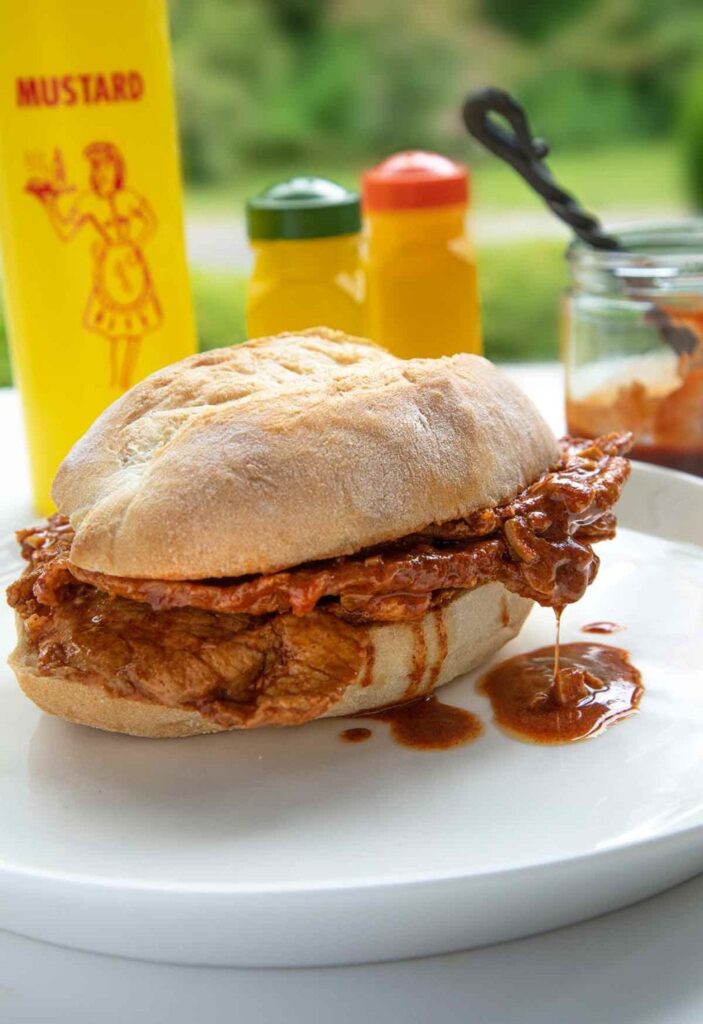
3. Bifana Sandwich
The bifana sandwich is a beloved Portuguese breakfast option. You’ll find this tasty treat made with thinly sliced pork marinated in white wine, garlic, and spices.
The marinated pork is cooked until tender and juicy. It’s then placed in a soft Portuguese roll called papo seco. The cooking juices are often drizzled over the meat for extra flavor.
Bifanas are simple yet delicious. You can enjoy them plain or add toppings like mustard or hot sauce. These sandwiches are perfect for a quick, satisfying breakfast on the go.

4. Portuguese French Toast (Rabanadas)
Rabanadas are a delicious Portuguese breakfast treat similar to French toast. You’ll love this sweet and crispy dish that’s perfect for special occasions.
To make rabanadas, start by soaking bread slices in a mixture of milk, eggs, cinnamon, and vanilla. Then fry the soaked bread in oil until golden brown on both sides.
After frying, sprinkle the rabanadas with a cinnamon-sugar mixture for extra sweetness. The result is a crispy exterior with a soft, custardy inside.
Rabanadas are often enjoyed during Christmas and other holidays in Portugal. You can serve them warm with a drizzle of honey or maple syrup for a delightful breakfast treat.
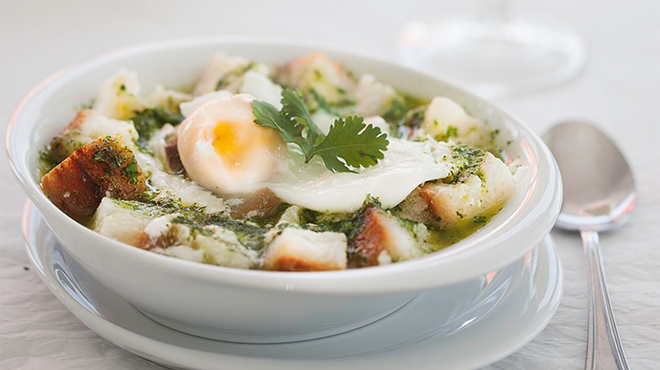
5. Açorda de Alho
Açorda de Alho is a bread-based soup that’s easy to make and perfect for cold mornings. To prepare Açorda de Alho, start by crushing garlic and cilantro in a mortar.
Mix this paste with olive oil and hot water to create a flavorful broth.
Add chunks of day-old bread to the broth. Let the bread soak up the liquid until it’s soft.
Poach eggs separately and place them on top of the bread mixture.
Season with salt and pepper to taste. Serve hot in individual bowls for a warming, satisfying breakfast that’s full of traditional Portuguese flavors.
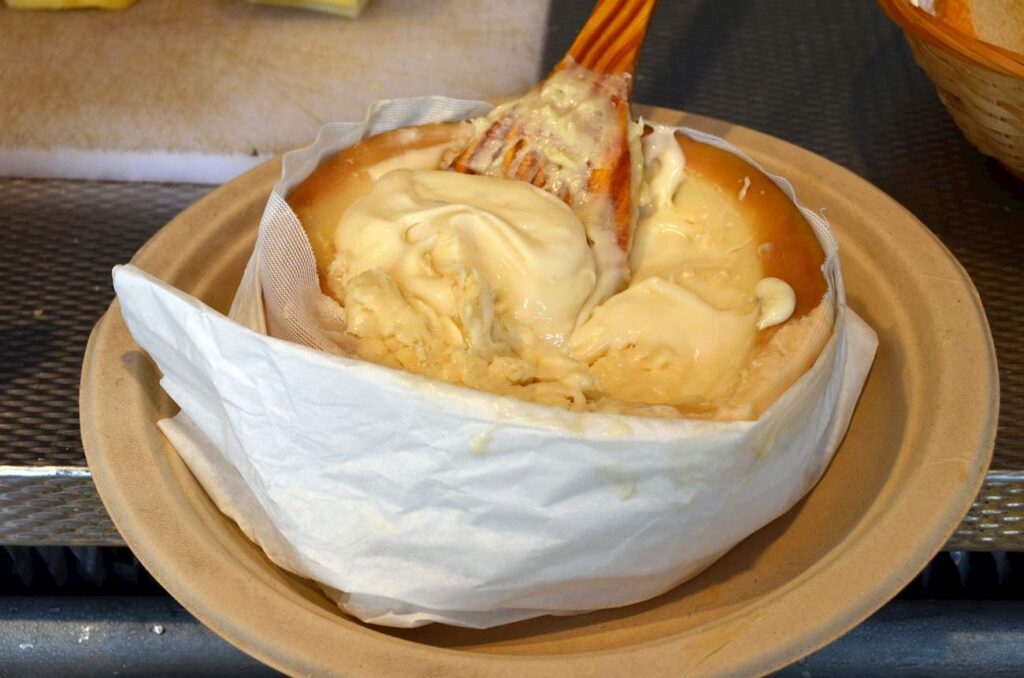
6. Queijo da Serra
Queijo da Serra is a creamy sheep’s milk cheese from Portugal’s Serra da Estrela region. You can enjoy this delicious cheese as part of your Portuguese breakfast.
Spread Queijo da Serra on fresh bread for a simple yet tasty morning meal. Its rich, buttery texture and slightly tangy flavor pair well with coffee or tea.
For a more substantial breakfast, try topping your toast with Queijo da Serra and a drizzle of honey. The sweet and savory combination is sure to please your taste buds.
This cheese also works well in omelets or scrambled eggs. Add small pieces to your egg dish for extra flavor and creaminess.

7. Caldo Verde
Caldo Verde is a hearty Portuguese soup that’s perfect for breakfast. It’s made with potatoes, kale, and spicy sausage. To make it, start by sautéing onions and garlic in olive oil.
Add diced potatoes and water or chicken stock, then simmer until the potatoes are tender.
Blend the soup until smooth, then add finely sliced kale. Cook for a few more minutes until the kale is wilted. Serve with slices of chorizo sausage on top.
This comforting soup will warm you up and keep you full all morning. You can adjust the thickness by adding more or less liquid to suit your taste.

8. Pão de Deus
Pão de Deus is a heavenly Portuguese breakfast bread. You’ll love its soft, fluffy texture and sweet coconut topping.
To make it, mix yeast with warm water and let it sit. Combine flour, sugar, eggs, and salt in a bowl. Add the yeast mixture and knead until smooth.
Let the dough rise until it doubles. Shape it into small rolls and top with a coconut-sugar paste. Bake at 340°F until golden brown.
Enjoy your Pão de Deus with butter and coffee for a tasty breakfast treat. The name means “Bread of God,” and you’ll understand why when you taste it.
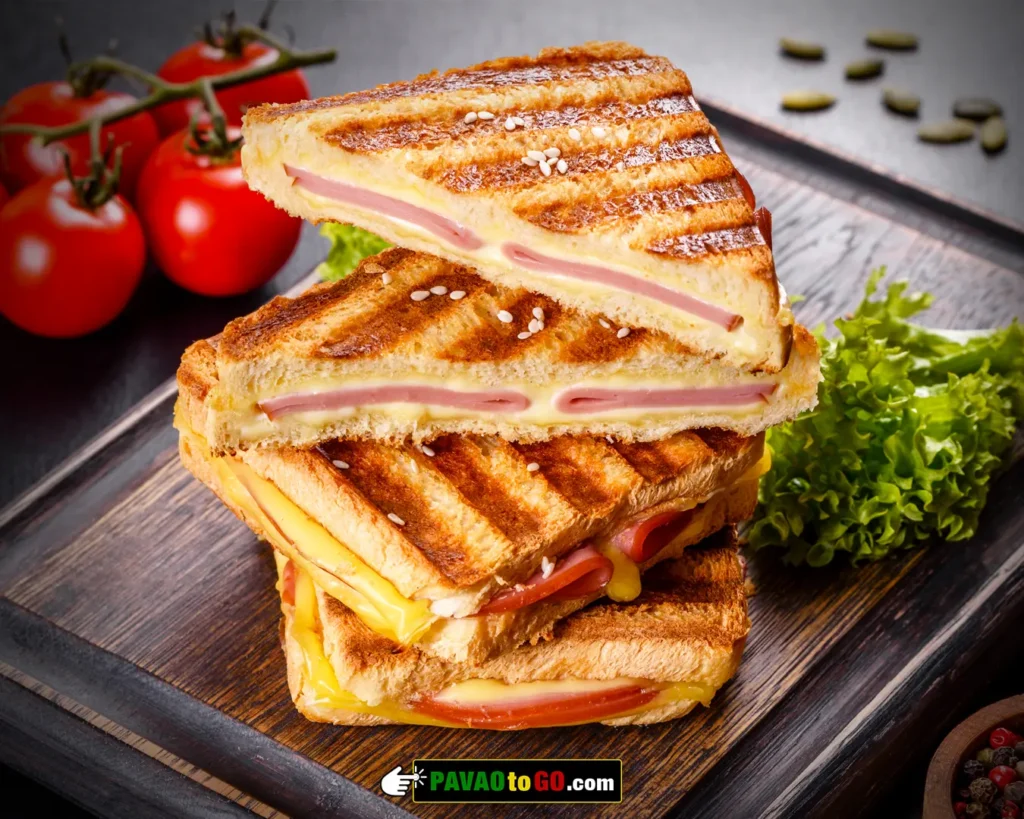
9. Tosta Mista
Tosta Mista is a popular Portuguese breakfast sandwich. It’s a simple yet delicious ham and cheese melt that will start your day off right.
To make Tosta Mista, you’ll need a soft Portuguese roll called papo-seco. Cut it in half and fill it with ham and cheese. Add a pinch of salt and pepper for extra flavor.
Before toasting, brush the top of the roll with beaten egg. This creates a crispy, golden crust. Sprinkle some herbs on top for added taste.
Toast the sandwich until the cheese melts and the bread turns crunchy. The result is a warm, comforting breakfast that’s both satisfying and easy to make.
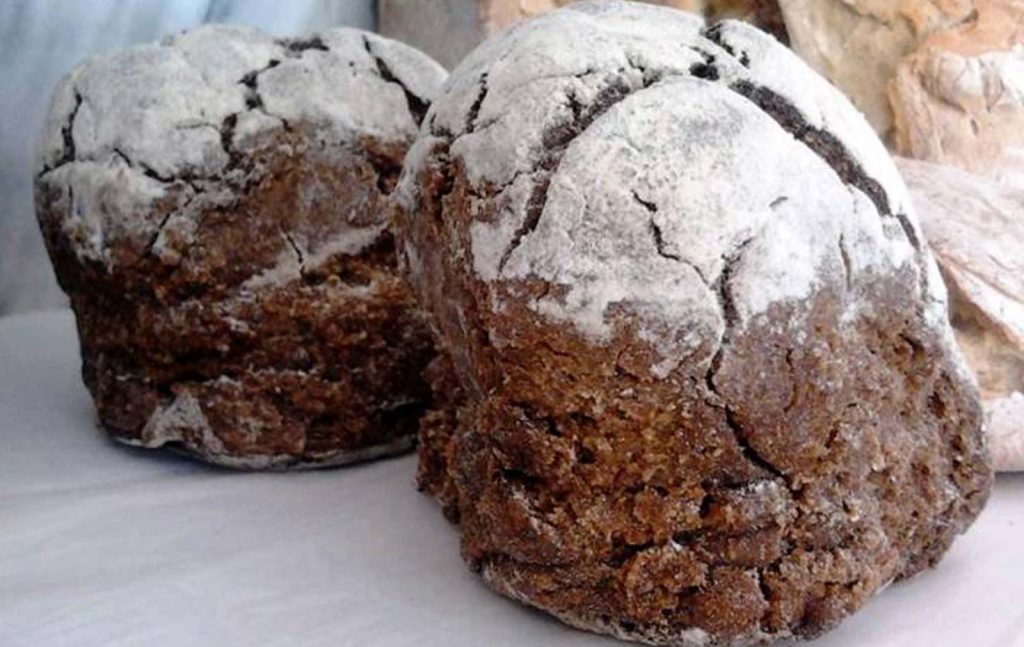
10. Broa de Avintes
Broa de Avintes is a unique Portuguese bread that’s perfect for breakfast. This dark, dense loaf comes from the town of Avintes near Porto.
You’ll love its rich flavor and hearty texture. Bakers make it with a mix of corn and rye flour, giving it a distinctive taste and color.
The bread takes time to prepare, often fermenting for 24 hours before baking. This process adds depth to its flavor profile.
Try Broa de Avintes toasted with butter or cheese. It’s also great for dipping in soups or stews. Its sturdy texture holds up well to spreads and toppings.
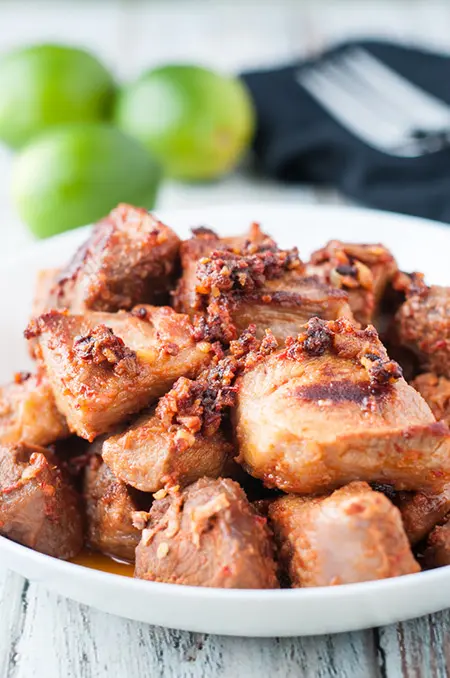
11. Torresmo
Torresmo is a crispy Portuguese pork snack. You can make it at home using pork belly. Cut the pork into small pieces and season with salt.
Cook the pieces in a pan over low heat. As they cook, the fat will render out. Keep cooking until the pork turns golden and crispy.
Torresmo is often eaten as a snack or appetizer. You can also use it to add flavor to other dishes. It’s crunchy, salty, and full of rich pork flavor.
Try serving torresmo with bread or as a topping for salads. It’s a tasty treat that’s popular in Portuguese cuisine.

12. Pataniscas de Bacalhau
Pataniscas de bacalhau are tasty cod fritters enjoyed for breakfast in Portugal. To make them, you’ll need salted cod, flour, eggs, onion, and parsley.
Start by soaking the cod to remove excess salt. Then boil it and shred the fish.
Mix the shredded cod with chopped onion, parsley, eggs, and flour to form a batter.
Fry spoonfuls of the batter in hot oil until golden brown. The result is crispy on the outside and soft on the inside. These fritters are often served with rice or salad.
Pataniscas de bacalhau make a filling and flavorful start to your day. They’re a great way to try traditional Portuguese flavors at breakfast time.
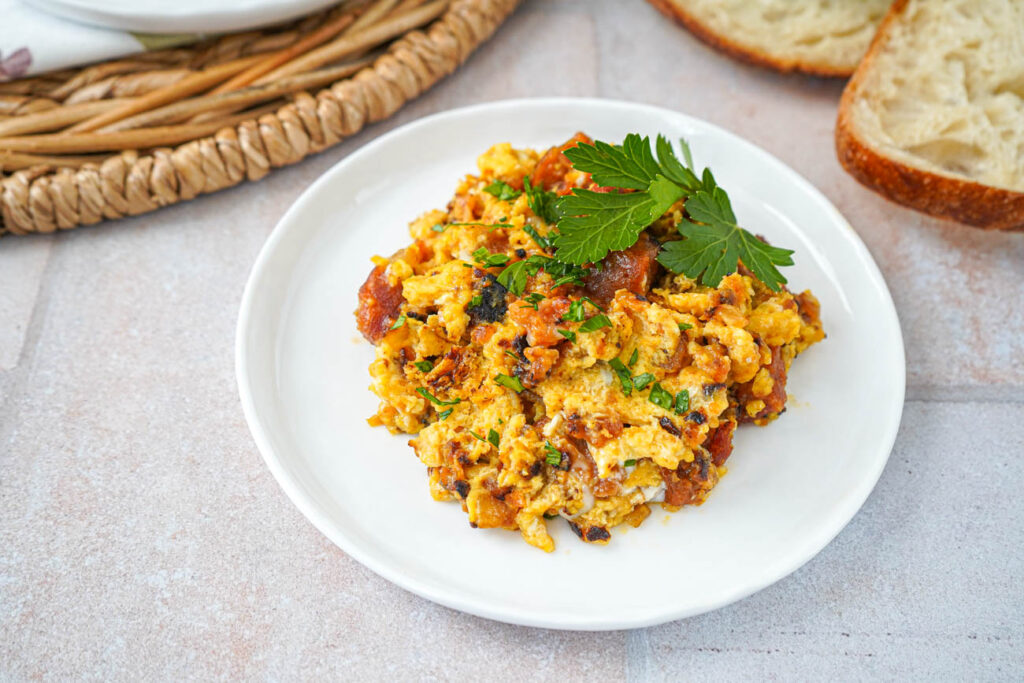
13. Ovos com Farinheira
Ovos com Farinheira is a tasty Portuguese breakfast dish. It combines scrambled eggs with farinheira, a unique Portuguese sausage.
To make it, you’ll need eggs and farinheira sausage. Cut open the sausage and crumble the meat inside. Cook the crumbled farinheira in a pan until it’s lightly browned.
Beat the eggs and add them to the pan with the farinheira. Gently stir as the eggs cook. The result is creamy scrambled eggs with savory bits of sausage mixed in.
You can add some herbs like coriander for extra flavor. Serve hot with crusty bread on the side. It’s a filling and flavorful way to start your day.
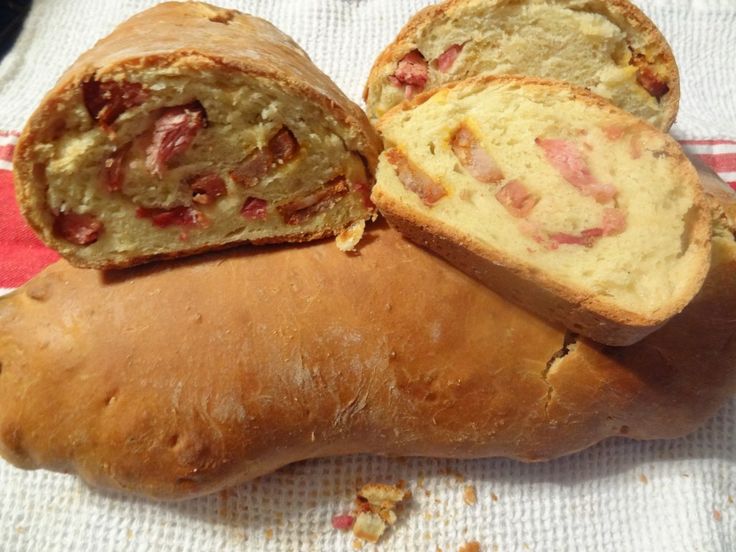
14. Folar de Chaves
Folar de Chaves is a savory Portuguese bread traditionally eaten during Easter. This hearty loaf is packed with various meats, making it a filling breakfast option.
To make Folar de Chaves, you’ll start by preparing a dough with flour, yeast, eggs, butter, and olive oil. After kneading and letting it rise, you’ll add chopped meats like ham, sausage, and bacon.
The dough is then shaped into a round loaf and baked until golden brown. When done, you’ll have a flavorful bread with a soft interior and crispy crust, perfect for sharing with family and friends.
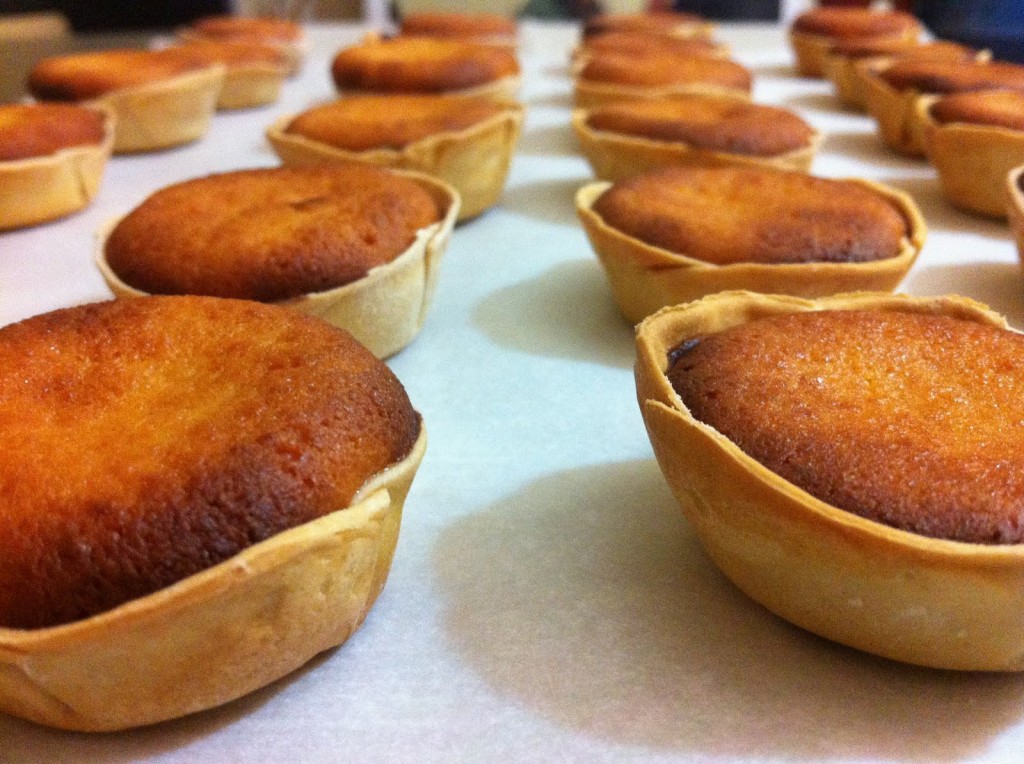
15. Queijadas de Sintra
Queijadas de Sintra are delightful Portuguese cheese tarts that make a perfect breakfast treat. These small pastries have a crispy outer shell and a creamy, sweet filling.
To make them, you’ll need a thin pastry dough and a mixture of cheese, egg yolks, and sugar. The dough is rolled out very thin and cut into circles to line small molds.
Fill the pastry shells with the cheese mixture and bake at 400°F (200°C) until golden and caramelized. The result is a rich, flavorful tart with a slightly crunchy exterior and a smooth, cheesy center.
These tarts pair well with coffee or tea for a satisfying morning meal. You can enjoy them warm or at room temperature.
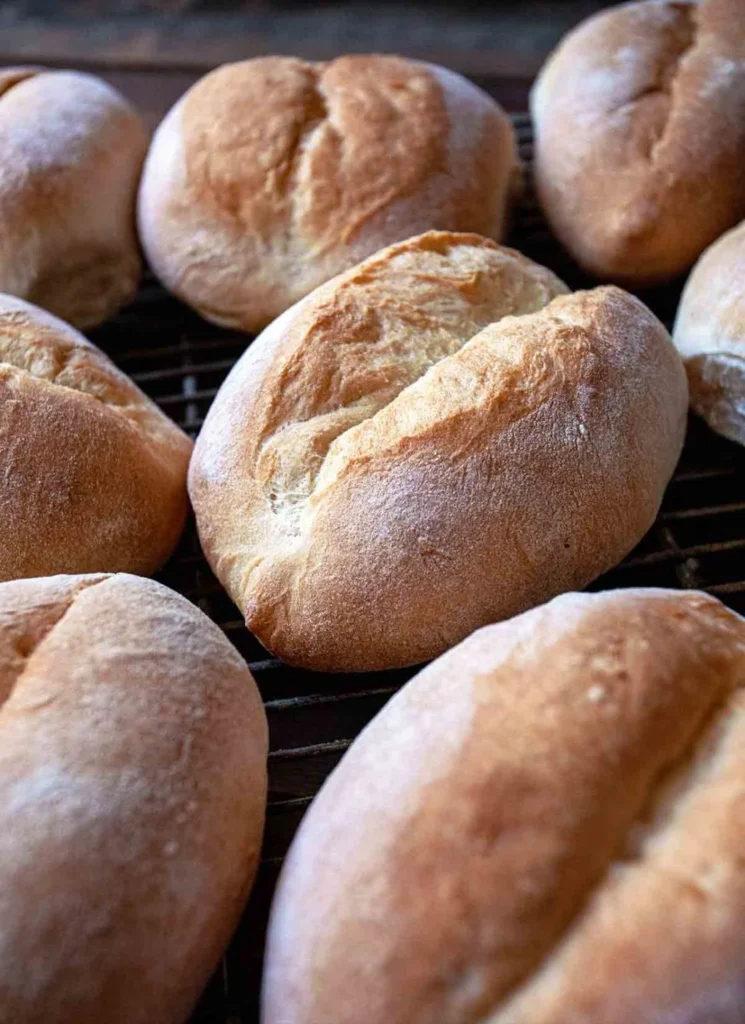
16. Papo-seco Rolls
Papo-seco rolls are a staple of Portuguese breakfasts. These crusty bread rolls have a distinct oblong shape with a crease down the middle. You’ll find them in bakeries across Portugal.
The rolls are crispy on the outside and soft on the inside. They’re perfect for making sandwiches or simply enjoying with butter.
Many Portuguese use papo-secos for their morning toast.
You can also use these rolls to make tosta mista, a popular Portuguese ham and cheese melt. The sturdy texture of papo-secos holds up well to toasting and fillings.
The Cultural Significance of Portuguese Breakfasts
Portuguese breakfasts blend history, tradition, and regional flavors. These morning meals reflect the country’s agricultural roots and coastal influences.
Historical Influences on Breakfast Traditions
Portugal’s breakfast habits grew from its rural past. Farmers needed hearty meals to fuel long days of work. This led to the use of locally grown ingredients like eggs, bread, and dairy.
The Age of Exploration brought new foods to Portugal. Coffee became popular in the 18th century. It’s now a key part of Portuguese breakfasts.
Religious customs also shaped breakfast habits. During Lent, people ate simpler meals. This led to the creation of dishes like açorda, a bread soup.
Regional Breakfast Variations
Portugal’s diverse regions have unique breakfast traditions. Coastal areas often include fish in morning meals. Inland regions use more meat and dairy products.
In the north, you might find caldo verde, a kale soup, for breakfast. The Algarve region offers fig and almond pastries.
Lisbon is famous for pastéis de nata, custard tarts. Porto has its own version called nata do Porto.
Rural areas still enjoy traditional farm breakfasts. These include fresh bread, cheese, and homemade jams.
Urban areas offer quicker options like toast with butter and coffee. But many still value sit-down family breakfasts on weekends.
Common Ingredients in Portuguese Breakfasts
Portuguese breakfasts often feature a mix of simple yet flavorful ingredients. Bread, pastries, dairy, and protein sources form the foundation of many traditional morning meals.
Role of Bread and Pastries
Bread is a staple in Portuguese breakfasts. You’ll find crusty loaves of pão, a rustic white bread, on most tables. Rolls and buns are also popular choices.
Sweet pastries like pastel de nata, a creamy egg tart, offer a delightful treat to start the day. Croissants and other flaky pastries have become common in recent years too.
For a savory option, you might enjoy pão com chouriço, bread stuffed with spicy sausage. This hearty dish can keep you full until lunch.
Use of Dairy and Protein Sources
Dairy plays a big part in Portuguese breakfasts. You’ll often see cheese, especially queijo fresco, a fresh white cheese.
Yogurt is another common choice.
Eggs are a key protein source. You might have them scrambled, fried, or in dishes like ovos mexidos (scrambled eggs with bread).
Ham and sausages add flavor and protein to many breakfasts. Look for presunto (cured ham) or linguiça (smoked pork sausage) on breakfast menus.
Fish, like sardines or bacalhau (salt cod), sometimes appear in heartier morning meals. These options reflect Portugal’s strong fishing tradition.